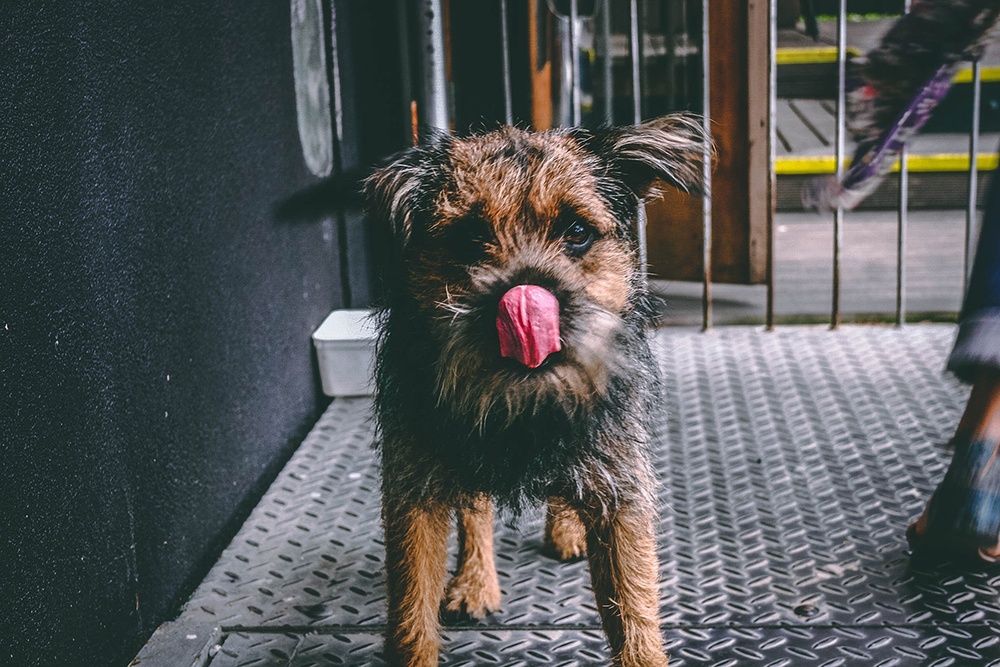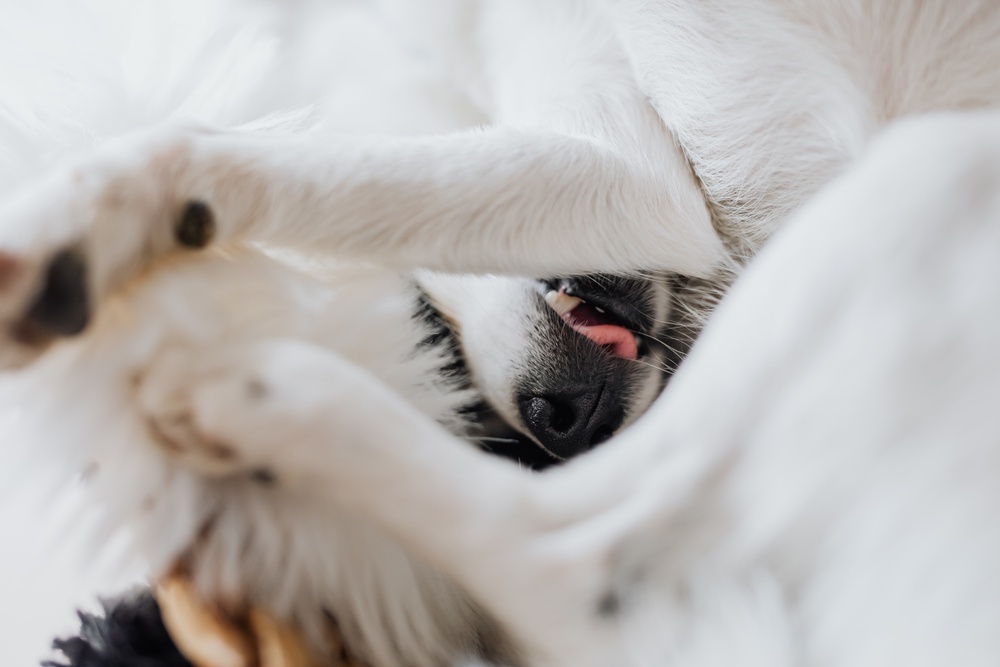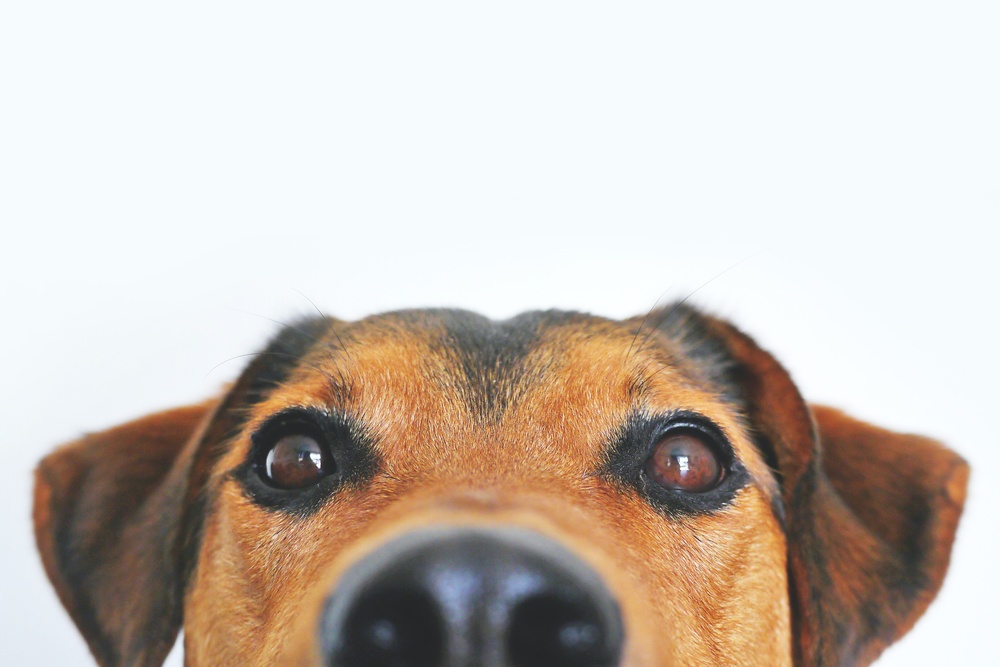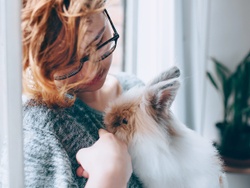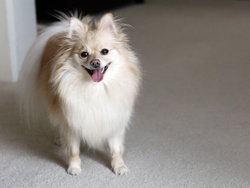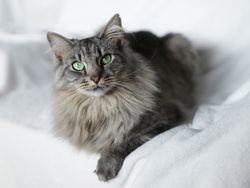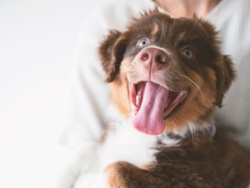Why is My Dog Licking Its Butt, and Should I be Worried?
There's no question that seeing your dog licking its butt is strange. However, while it might seem disturbing to humans, there's usually a reason. In most cases, your dog is simply attempting to clean themselves up when they lick their butts. However, if your dog licks their butt non-stop, it might be for another reason.
The Most Common Reasons That Dogs Lick Their Butt
As we said in the introduction, dogs will lick their butts to clean them. It's similar to how they lick the rest of their body to groom themselves. After all, dogs can't draw themselves a bath or take a shower, so licking is one of the only ways they can stay clean.
While grooming is the most common reason dogs like their butts, it's not the only one. You can tell if your dog is licking themselves for cleaning purposes based on how often they do it. They should only lick their butts occasionally if they're grooming themselves. If they do it constantly, however, they're probably licking their butt for a different reason.
Parasites
Broadly speaking, two types of parasites can affect your dog.
- Internal Parasites
There are several parasites that can get into your dog's intestines, and they're known as intestinal parasites. A few of the most common intestinal parasites are tapeworms, roundworms, hookworms, and ringworms. These worms can get into your dog's body through something they ate or drank, such as contaminated food, feces, or water.
Intestinal parasites live inside your dog and will occasionally get expelled through its pool. However, when they expel these parasites in their poop, they can cause irritation around the rectum. It's even possible for parts of the worm to get stuck on the outside of your dog's rectum. When this happens, your dog will lick their butts to alleviate the itching and discomfort the parasites are causing.
- External Parasites
In addition to intestinal parasites, there are also external ones, such as ticks, mites, and fleas, to worry about. When these tiny parasites and insects make their home and start biting around your dog's rectum, it causes a great deal of itching and irritation. Your dog will then begin licking their butt profusely to ease the pain and irritation.
Anal Gland Issues
Another reason that dogs will lick their butts is because of their anal glands. All dogs have two anal glands - one on either side of the rectum. These anal glands sometimes referred to as scent glands, contain liquid that gets expelled when your dog poops. However, there are times when the anal glands fill with fluid and don't empty or express themselves on their own.
When the anal glands fill up and don't express, the fluid begins to harden inside them and become impacted. As the fluid hardens, it can cause a great deal of discomfort and irritation to your dog. They know they need to express their anal glands, but they don't know how because it usually happens naturally.
With no other options, your dog will start licking their butt in an attempt to express the glands. There's also a chance they'll drag their butts across the floor. Dogs do both of these, hoping to empty their anal glands and relieve the irritation.
An Allergy or Skin Infection
The third main reason dogs lick their butt excessively is an allergy or skin infection. Contrary to what you may think, dogs are just as prone to allergies, if not more so than humans.
Your dog may be allergic to their food, something in the environment, items in your home, and more. It's also possible that your dog cut or scratched themselves, and the wound has become infected.
If the allergic reaction or skin infection is on or around your dog's rectum, it will cause a ton of irritation and become very itchy. Once again, licking is the only thing your dog will know to do to relieve the irritation around their rectum. Unfortunately, licking often complicates the problem and will worsen the allergy or infection on your dog's rectum.
How to Get Your Dog to Stop Licking Their Butt
The only way to get your dog to stop licking its butt is to treat the underlying problem.
- Treating Anal Glands
If your dog is licking their butt because of impacted anal glands, it won't stop licking until the glands are expressed. You can express your dogs' glands manually on your own, or you can take them to a vet. There are also antibiotics that your vet may prescribe to your dog to loosen up the anal glands. If you attempt to express the glands yourself, be ready for a massive mess and a terrible smell.
- Treating Parasites
As with anal gland issues, the best way to treat your dog for parasites is by taking them to a vet. Your vet will test your dog's stool and be able to detect the presence of parasites and worms. They can then treat your dog with the necessary antibiotics, medications, and dewormer to eradicate any parasites.
- Treating Allergies and Infections
Treating allergies and skin infections in dogs is a little more complicated than anal glands and parasites. A blood test is necessary to determine the type of allergy your dog has. Unfortunately, blood tests aren't always reliable when it comes to pinpointing allergies in dogs. If the blood test is successful, however, your dog must be desensitized from whatever is causing the allergy.
If your dog has a skin infection, it must get treated with antibiotics and a vet visit.
When to Contact a Veterinarian
You should contact a veterinarian whenever you notice your dog licking their butt excessively. A vet visit is almost always necessary, whether they're licking because of parasites, allergies, anal gland issues, or an infection. Your vet will have the technology and tools necessary to make an accurate diagnosis and treatment.
Taking your dog to a vet is especially important if you notice any of these signs in conjunction with butt-licking:
- Lethargy
- Lack of appetite
- Vomiting or diarrhea
- Inflammation or redness around your dog's rectum
- Visible worms in your dogs' stool or around their anus
Remember, it's always better to be safe than sorry when it comes to your dogs' health. They can't communicate what they're going through with words, so they'll do it through their actions. For that reason, it's essential to be on the lookout for warning signs such as excessive licking of the butt.
Fact checked by Veterinarian

Dr. Paula Simons is an Emergency and Critical Care veterinary resident on her way to becoming a veterinary criticalist. She is originally from Philadelphia, Pennsylvania, and completed her veterinary training in Ontario, Canada, at Ontario Veterinary College. Dr. Paula Simons has a particular interest in critical care nutrition, trauma, and pain management. She enjoys the management of surgical patients and troubleshooting complex cases. Additionally, she is a huge advocate for her patients and ensuring their comfort. She has two cats named Moo and Kal, whom she loves dearly. More About Us

